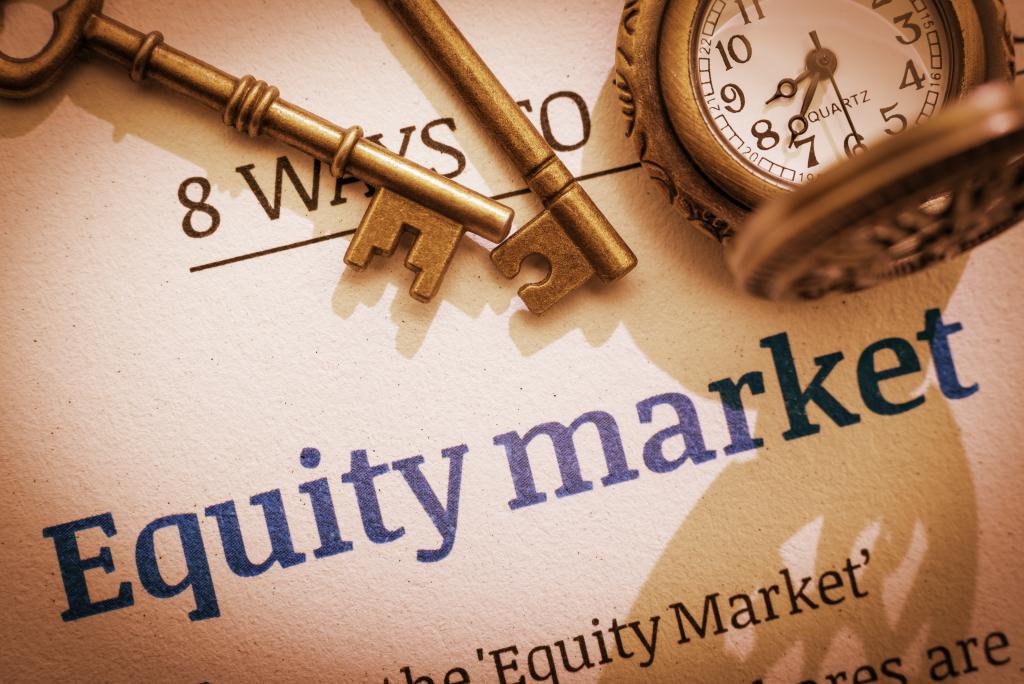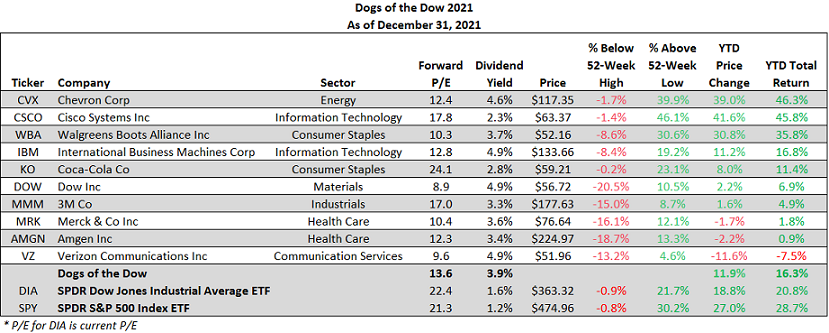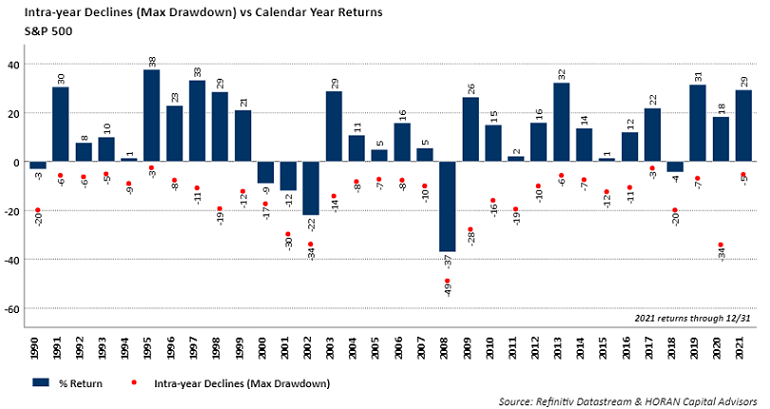Author: David I. Templeton, CFA, Principal and Portfolio Manager
One investment strategy that gets attention at the beginning of each year is the Dogs of the Dow. The Dogs of the Dow strategy is one where investors select the ten stocks that have the highest dividend yield from the stocks in the Dow Jones Industrial Index (DJIA) after the close of business on the last trading day of the year. Once the ten stocks are determined, an investor invests an equal dollar amount in each of the ten stocks and holds them for the entire next year. The popularity of the strategy is its singular focus on dividend yield. In this past year, 2021, the strategy did not keep pace with either the Dow Jones Index or the S&P 500 Index. As seen in the below table the Dow Dogs generated a total return of 16.3% versus 20.8% for the DJIA and 28.7% for the S&P 500 Index.
Comparing the Dow Dogs performance to the DJIA Index, the largest detractor to the strategy's performance was the 412 basis point underperformance in the Health Care sector. As the above table shows, both Merck (MRK) and Amgen (AMGN) barely generated a positive total return. Underperformance also occurred in the Consumer Discretionary sector, i.e., 236 basis points underperformance as the Dow Dog strategy contained no consumer discretionary stocks in 2021 as will be the case in 2022. Energy and Information Technology sectors were both positive contributors to performance, +221 and + 147 basis points respectively.
The technology sector's favorable return was generated from the Cisco (CSCO) holding. Consequently, the strong 45.8% return in CSCO has pushed the company's stock dividend yield down to 2.3%. As a result, CSCO is being replaced with Intel (INTC) in the Dow Dog strategy for 2022. INTC has a dividend yield of 2.7%. The other nine Dogs of the Dow remain unchanged from those of 2021.
Finally, and our firm plans to have more on this in our upcoming Quarterly Investor Letter, but 2021 was a strong year for the U.S. equity market. The S&P 500 Index was up 28.7% in 2021 and this follows a 18.4% return in 2020 and a 31.5% return in 2019. Some might say the market is overdue for a negative year. However, as the below chart shows, it is not uncommon for the equity market to string together five or more positive years in a row. In fact in the mid 1990's, six of the nine positive years were up more than 20%. Since the end of the Great Financial Crisis in 2009, the S&P 500 Index has only had one down year and that was a single digit decline of 4.4% in 2018.
The performance of the equity market and the economy can move in different directions. However, with a current economy that appears to be operating strongly as pent up demand is being satisfied coming out of the pandemic, further economic strength might be in the cards in the coming new year. Economic strength would serve as a tailwind for company performance broadly and just possibly another favorable year for equity returns.
Disclosure: Firm and/or family long CSCO, DOW, MMM, MRK, VZ
HORAN Wealth, LLC is an SEC registered investment advisor. The information herein has been obtained from sources believed to be reliable, but we cannot assure its accuracy or completeness. Neither the information nor any opinion expressed constitutes a solicitation for the purchase or sale of any security. Any reference to past performance is not to be implied or construed as a guarantee of future results. Market conditions can vary widely over time and there is always the potential of losing money when investing in securities. HORAN Wealth and its affiliates do not provide tax, legal or accounting advice. This material has been prepared for informational purposes only, and is not intended to provide, and should not be relied on for tax, legal or accounting advice. You should consult your own tax, legal and accounting advisors before engaging in any transaction. For further information about HORAN Wealth, LLC, please see our Client Relationship Summary at adviserinfo.sec.gov/firm/summary/333974.



